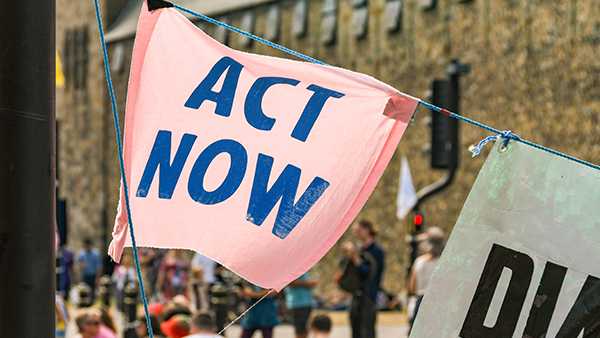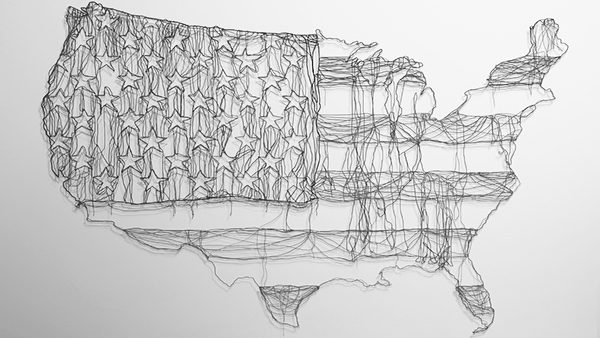Candidates for the Labour Party leadership will say it is about many things: policy, competence, the ability to relate to and connect with voters. But there is something at stake which will almost certainly remain unspoken. Is Labour’s mission to create ‘socialism’, or to repair and renew liberal democracy?
Polarisation, pessimism and populism: how did we get here?
The story of most Western nations in the three decades after the second world war was largely positive. The story since has been much more mixed and many societies are now characterised by what the OECD refers to as the three ‘Ps’: polarisation, pessimism and populism. There are two main ways of accounting for this contrast.
The populist view is that if only we could confront the depredations of the elite and act for ‘the people’, we both can – and should – recreate a golden past. For the right, this tends to involve a reaction against aspects of social liberalism, plus the reassertion of the nation and tribe as the bedrock of social cohesion and collective values. For the left, the project is implicitly to recreate the post-war world by extending welfare and growing the public sector, enhancing the economic role of the state and increasing taxes on the affluent.
There is a second view of what the French called ‘les trente glorieuses’ (‘the glorious thirty’, referring to the thirty years of unprecedented growth following the war). This was developed by several economists and historians and is more evidentially substantive. First, these years were a historical anomaly in comparison to more normal peacetime patterns of social conflict and economic inequality. Second, such periods of relative social solidarity only occur after wars or other social conflagrations. Third, certain elements of the time – for example, the hegemony of American power and the dollar, the imbalance of gender relations, the ethnic homogeneity of nations – were temporary, problematic, or both.
I look at things differently. In living memory, the nations of Western Europe and North America achieved a sustained period of relative economic stability, of steadily rising family living standards, of expanding social provision, of reasonably functional and confident politics, and of growing individual freedoms and legal rights, while also rolling back the remaining vestiges of colonial rule. This should inspire us to believe that such a balance might be created again and to explore what we might take from those years as a guide for the very different balance we need in the 21st century.
We cannot recreate this past, but history suggests two important lessons.
First, as progressives we should be unashamed champions of the principles of liberal democracy. When it is working effectively, no system in history has been as capable of delivering progress in the lives of ordinary people.
I have previously written about the work of Mary Douglas and her followers. Her 'cultural theory' argues that there are four fundamental forms of human motivation; forms which are also theories of change and the basis for world views. They are: the hierarchical (the domain of authority and expertise), the solidaristic (the domain of belonging and collective values), the individualistic (the domain of freedom and aspiration) and the fatalistic (the domain of realism and resignation). When it is functioning well, liberal democracy is the best system for expressing and aligning these different forms.
The Bulgarian French historian Tzvetan Todorov has defined the central principles of the Enlightenment as ‘autonomy’, ‘universalism’ and ‘humanism’. The first principle concerns our desire for freedom and self-expression, the second speaks to the values that bind the human community, while the third represents a belief in progress defined by the expansion of human possibility through the application of reason. The genius of the Enlightenment was that it spoke to and released our core human motivations. Furthermore, from its beginnings it has involved a continuous intellectual and political exploration of how these motivations can be expressed, managed and aligned. When progressives disparage liberal democracy or argue for some alternative such as ‘socialism’, they are turning their back on a system with an inherent and proven capacity to enable human flourishing.
The second lesson is just as important. The benign balance made possible by the philosophy and methods of liberal democracy is only achieved through continual vigilance, determination and creativity. Progressives need to be ‘liberals who mean it’, arguing for empowering and effective forms of authority; resilient and inclusive models of solidarity; responsible, humanistic models of individualism and humility and wisdom in the face of human nature and reality. In doing this, we must recognise the failure of liberalism to live up to its principles; for example, in its long-term privileging of the rights and interests of Western white men, and the terrible consequences that have resulted from this prejudice. It is said that hypocrisy is the compliment vice pays to virtue. While liberalism has often strayed far from its enlightenment ideas, as Martin Luther King’s famous quote reminds us, those same ideals have been used by campaigners to make and win the case for reform:
“I have a dream that one day this nation will rise up and live out the true meaning of its creed: ‘We hold these truths to be self-evident, that all men are created equal.’”
Mary Douglas’s framework can add a functional argument to the ethical case for liberalism. Namely, that embodying and balancing the core principles of liberal democracy is the most likely source of social resilience and route to human progress. The theory allows us to identify the systematic nature of liberalism’s frailties; to understand how hierarchy is always necessary but also prone to over-reach and self-aggrandisement, how solidarity is an essential and positive force in society but one which has the potential to be divisive and destructive, how fatalism is an inevitable and often insightful part of the human condition but also sometimes a sign of social malaise, and how individualism is creative and dynamic but also always in danger of overbalancing the social system with its internal tensions.
The voraciousness of individualism has proved to be liberalism’s most deep-set flaw. This is perhaps the consequence of autonomy being the most radical and novel element of Enlightenment thinking. From its origins to today, this has encouraged some thinkers and ideologues to argue that individualism is the primary – or even the only – force of progress. But it is also because individualist methods, particularly the market, adapt more effectively than authority and collectivism to a fast-changing reality.
The renewal of liberal democracy
Given the nature of the world we inhabit and the influence of neoliberalism, it is understandable that analysts of our current malaise have tended to focus on the need to address what I have called ‘the solidarity deficit’. This is the basis of the appeal of populism. But simply ‘dialling up’ a motivation or world view rarely works. To do so disturbs the whole system.
The renewal of liberal democracy involves exploring the way hierarchical, solidaristic and individualistic motivations must all be reformed to generate a balance that is more benign and resilient. It is the whole social system that must be reconstructed. Indeed, the very purpose and art of progressivism must involve the creation of a liberal democratic system fit for the 21st century. It is this, not the pursuit of the chimera of ‘socialism’, that should be the mission of our main progressive party.
Related articles
-
The public are ready to go further and faster on net zero
Anthony Painter
The public are ahead of policy-makers and, indeed, most of the business world. COP26 is an enormous opportunity to catch up. Global leaders should take it.
-
Can progressives ever stop the in-fighting?
Matthew Taylor
Biden's victory has caused the left and moderates to fracture again.
-
Can President Biden bring America together again?
Anthony Painter
There is a long road ahead for the new president.




Join the discussion
Comments
Please login to post a comment or reply
Don't have an account? Click here to register.
Its difficult to see how Labour can disconnect from its belief that socialism is progessivism.
Whoever wins this should call their new political philosophy '2020 Vision'.
Bada'boom'shhhhh
If they continue to try to establish socialism, they will remain in the wilderness for another decade. If they work on rebuilding liberal democracy, they might stand a chance in 2025 - but Johnson is going to work to hold that ground (with a touch of authoritarian nationalism thrown in occasionally to keep the right wing of his part and the hard line former Labour voters onside).